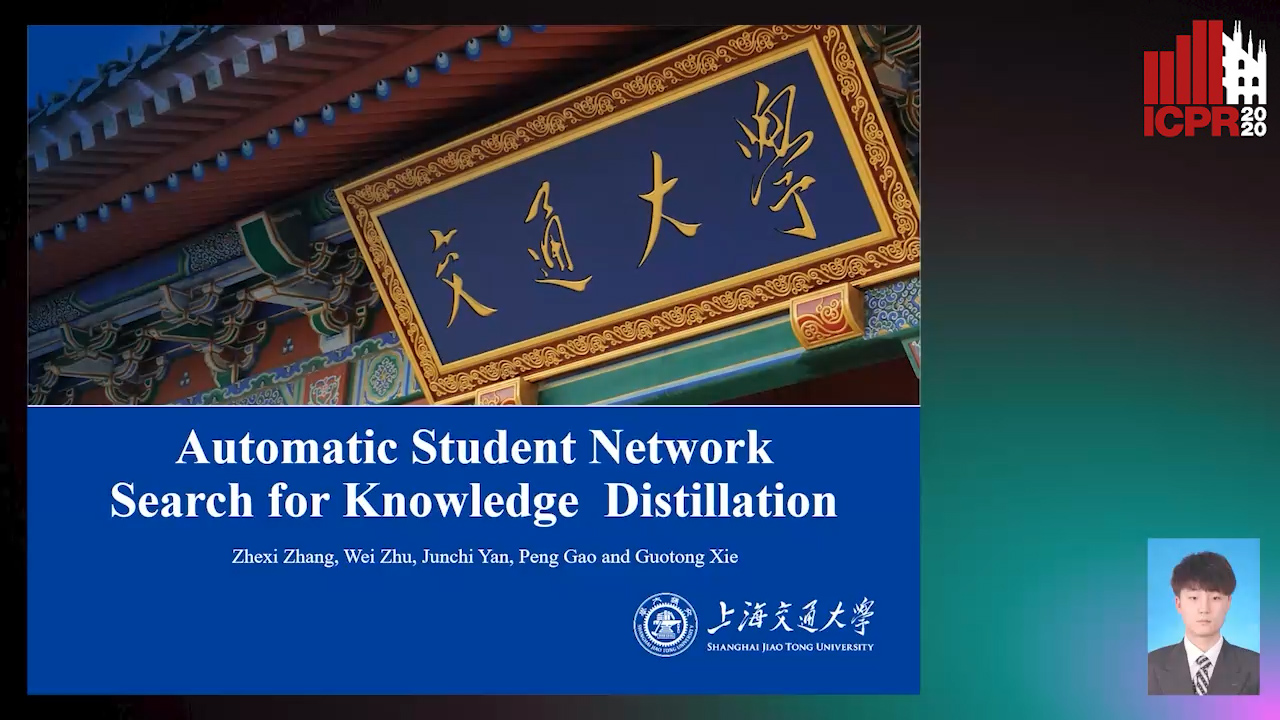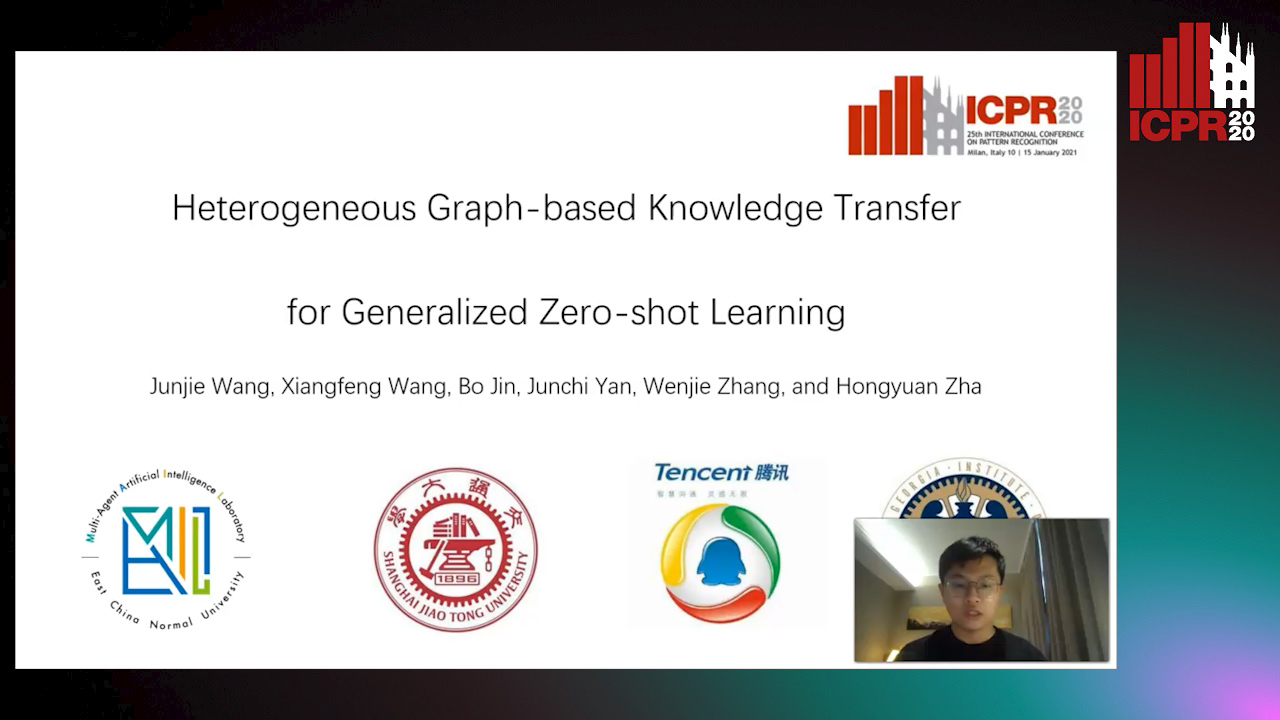Junchi Yan
Papers from this author
Automatic Student Network Search for Knowledge Distillation
Zhexi Zhang, Wei Zhu, Junchi Yan, Peng Gao, Guotong Xie

Auto-TLDR; NAS-KD: Knowledge Distillation for BERT
Abstract Slides Poster Similar
Heterogeneous Graph-Based Knowledge Transfer for Generalized Zero-Shot Learning
Junjie Wang, Xiangfeng Wang, Bo Jin, Junchi Yan, Wenjie Zhang, Hongyuan Zha

Auto-TLDR; Heterogeneous Graph-based Knowledge Transfer for Generalized Zero-Shot Learning
Abstract Slides Poster Similar